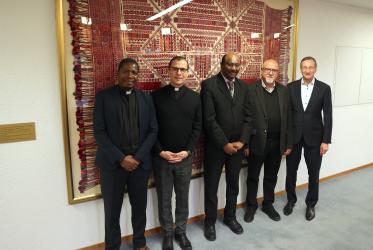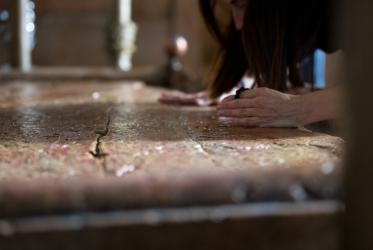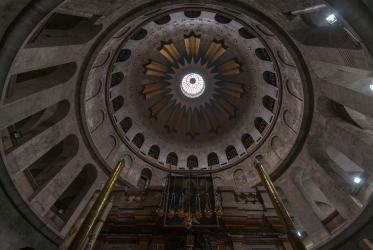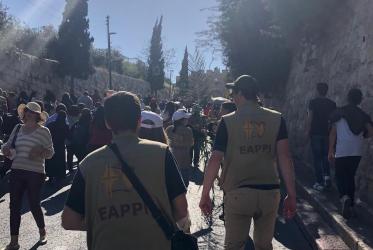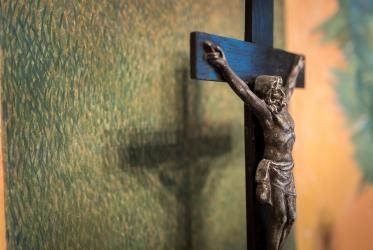Aisha (pseudo name) and her family, who live in the northern part of the West Bank, have many beloved traditions during Ramadan. She explained that Ramadan is a time of spiritual, religious, and social family gatherings.
On the first day of Ramadan—which this year was on 22 March— Aisha’s family cooks food that is either white or green in color, such yogurt and spinach. “After we eat in the evening—when we break the fast—we pray and some people go to the mosque,” she described. “Those who stay with the family eat lots of sweets, recite the Koran, and watch movies together.”
The family stays up, waiting for the muezzin—the person who proclaims the call to prayer—at about 3 a.m., then eats again until about 3:30 am, at which time the muezzin calls for prayer again, and the family returns to fasting.
“My hometown is approximately a 45-minute drive from Jerusalem, but because of the travel restrictions it takes two to three hours to get there—that is, if we are allowed to go,” said Aisha. “This year I received a permit for the first time in 20 years.”
To receive a permit, people like Aisha first apply for a magnetized card, paying $45 for the application, then they submit the application to the Israeli military. This must be done two weeks in advance, then the applicant waits until a security check is conducted. “People are denied permits if they have a relative on Israel’s security list,” explained Aisha. “Single men cannot get permits.”
During Ramadan—which this year began on 22 March and ends 20 April—men over 55 are allowed to enter Jerusalem without a permit. “If you are under 55, you must go to an app run by the Israeli military and submit all your personal information, and you give them a waiver to access all data in your smartphone,” said Aisha.
Last time she visited Jerusalem, she was a child. When she was finally able to visit as an adult, she was overwhelmed. “I burst into tears, and was so emotional when I saw Jerusalem,” she said. “I could hardly believe that I was in Jerusalem.”
She was able to see places she previously only on TV and in social media. “I felt a great spiritual feeling,” she said. “To me, when I arrived in Jerusalem, I felt how much I was deprived of my rights.”
When she saw soldiers, she felt happiness mixed with sadness. “There was pain in my heart,” she said. “During Ramadan, when I arrived at the checkpoint, I saw thousands of people waiting.”
This gave her a terrible feeling. “After I put the magnetic card in the machine, the door opened automatically,” she said. “Then we crossed to the other side and busses were waiting to take us to Jerusalem.”
While in the Jerusalem streets, Aisha was periodically stopped by the police who asked for ID and checked her bags.
“I was at Al-Aqsa Mosque at night when the Israeli police entered suddenly after the prayer has just ended,” she said. “Muslim authorities announced that a door from the other direction was open for us to leave quickly.”
She was with her parents. “The news spread that Al-Aqsa Mosque was under attack,” she said. “My sisters at home were trying to call us to make sure that we were okay, but they could not reach us.”
The rest of Aisha’s family—at home watching the news—were terrified for the safety of their loved ones. She and her parents ultimately emerged unscathed, although others were injured in a night of violence.
“What gives me hope is my faith in God, that justice will prevail,” said Aisha. "Al Aqsa Mosque is important to Muslims because it was mentioned in the holy Quran,” she said. “We must keep hope alive despite the challenge and the difficulty to reach Al Aqsa Mosque.”
The thousands of people she saw at the mosque gave her hope. “I wish that one day I can get into my car and drive from home to Al Aqsa Mosque—and see no wall or checkpoints,” she said. “I want to pray without an armed soldier watching me.”


